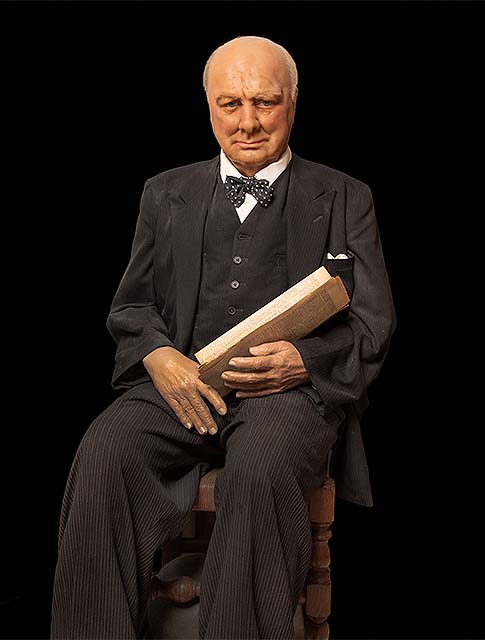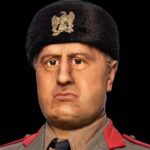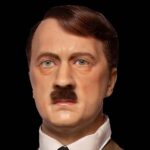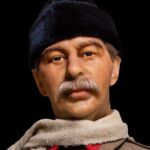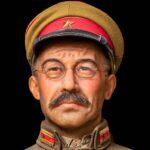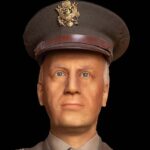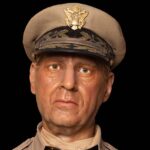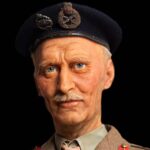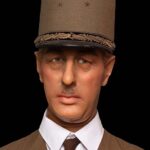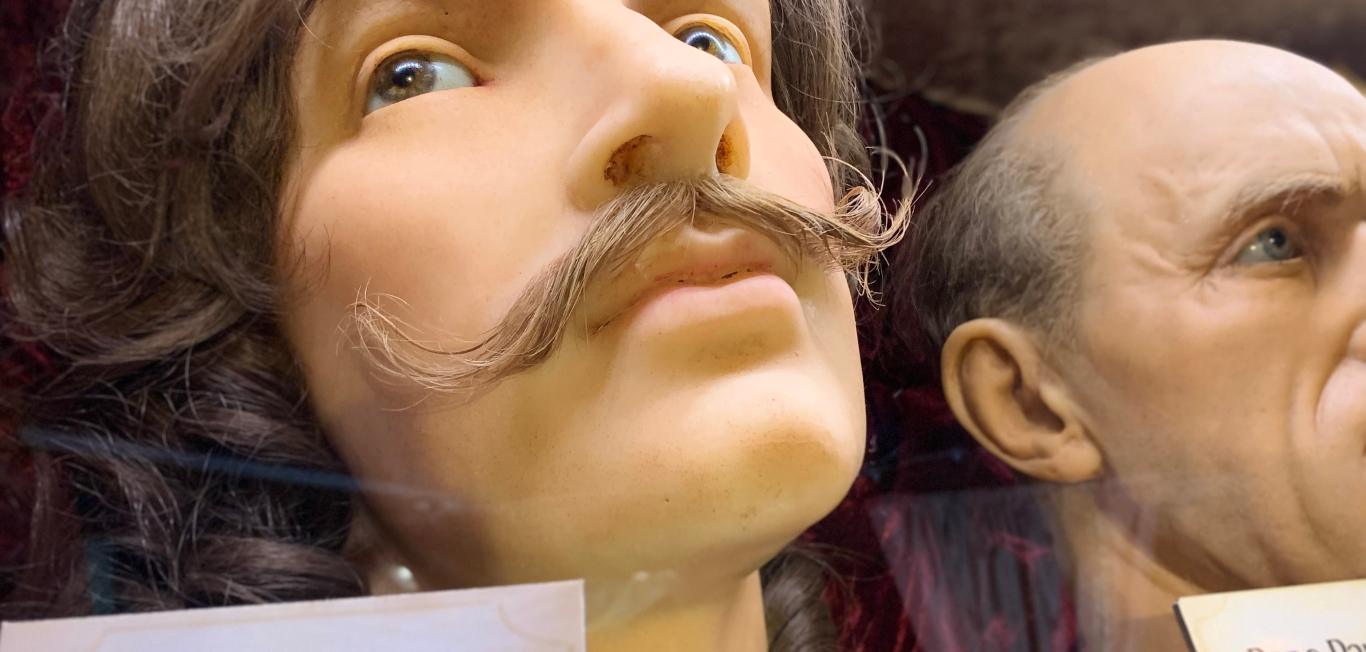History of Winston Churchill
Winston Churchill’s story begins on the 30th of November in 1874, when Sir Winston Leonard Spencer Churchill was born into an aristocratic family in Oxfordshire. The world would later know him as the accomplished man Winston Churchill, who immensely impacted the world’s history. Winston Churchill is most known in history for bringing the British together and taking his nation from loss to triumph during World War II.
Winston Churchill’s accomplishments before World War I led him to a remarkable ascent to popularity in the national spotlight. During World War I and the years following, Winston Churchill had a reputation for making rash decisions. He became a political outcast until 1940, when his reaction to Adolf Hitler propelled him to the top of a national alliance. Then, working with Franklin D. Roosevelt and Joseph Stalin, they helped formulate the Allied World War II strategy. After the alliance, he warned the West of the Soviet Union’s imperialist threat. In 1951, Winston Churchill helped the Conservative Party retake power, and he served as prime minister until his retirement due to poor health in 1955.
DID YOU KNOW?
During World War I and the years following, Winston Churchill had a reputation for making rash decisions.
Interesting Facts About Winston Churchill
Winston Churchill was also an accomplished artist.
The “British Bulldog” that was the “Greatest” Briton was actually half-American.
A Nobel Prize of Literature was awarded to Winston Churchill for his accomplishments in 1953.
Winston Churchill, who is better recognized for his first term, served as prime minister two different times. He served from May 10, 1940, to July 26, 1945, and then again from October 26, 1951, to April 6, 1955.
Winston Churchill served under six monarchs in the British Parliament.
On April 6, 1955, Winston Churchill’s term as a member of Parliament (MP) came to an end. After starting his career during the 1900 general election as the Conservative MP for Oldham, he served in the British Parliament for over 55 years. Victoria, Edward VII, George V, Edward VIII, George VI and Elizabeth II were all monarchs during the course of his political career.
On September 9, 1917, Winston Churchill received a letter from Lord Fisher in which the acronym “OMG” was first recorded. OMG! Who would have predicted this?
Winston Churchill entered the music charts and is the only prime minister to ever do so.
Winston Churchill suffered from a speech impediment.
There was a point in time when Winston Churchill was a prisoner.
The only statesman to be recognized two times in British currency history is Winston Churchill.
A fact about Winston Churchill’s escape from a prison camp in 1899 is that he was assisted by a mining manager.
He held a couple of different positions during World War I.
Although Winston Churchill’s health was declining, he was still able to accomplish a victory for the UK during World War II.
He became prime minister for a second time after six years.
Winston Churchill desired to wed an English woman who was Indian-born.
The Royal Academy took 2/500 of his paintings.
The only politician who is commemorated on British coins is Winston Churchill.
As a former prime minister and an accomplished man, Winston Churchill was the first to receive a funeral from the state.
One of Winston Churchill’s accomplishments was serving two times as prime minister.
Early Life of
Winston Churchill
Winston Churchill was a direct descendant of John Churchill, the 1st Duke of Marlborough, who defeated Louis XIV in the battles against France in the early 18th century. His father, Lord Randolph Churchill, was a soaring Tory politician. His mother was the well-known beauty Jennie Jerome, who was the granddaughter of New York millionaire and racehorse fan Leonard W. Jerome. However, young Churchill had a difficult and tragically neglected upbringing that was only made better by Mrs. Everest, his loving caregiver.
DID YOU KNOW?
Churchill's father, Lord Randolph Churchill, was a soaring Tory politician.
Winston Churchill’s father’s choice to enlist him in the army during his early life seemed fair in light of his glaringly subpar academic performance. Young Winston Churchill barely passed the admission test at the Royal Military College. He had to take the test three times. However, once there, Winston Churchill pushed hard and finished 20th in his class of 130.
Winston Churchill enlisted in the 4th Hussars in 1895; later the same year, his father tragically passed away. At first, his sole option for action was to travel to Cuba, where he spent a few months of his leave covering the island nation’s battle of independence against Spain while working for the Daily Graphic out of London. His battalion traveled to India in 1896, and in 1897, he served there as a journalist on the North-West Frontier. Winston Churchill’s dispatches were expanded into The Story of the Malakand Field Force (1898), which garnered such widespread notice that it set him on the intermittent literary career that he pursued throughout his life. He penned the Ruritanian novel Savrola (1897-1898) and joined Lord Kitchener’s Nile invasion army in the same dual capacity as a soldier and journalist. The campaign is masterfully described in The River War (1899).
Late in Life
In his later years, Winston Churchill served as an MP from 1900 to 1964, with the exception of the two years between 1922 and 1924. Churchill was named President of the Board of Trade in 1908. Churchill, who was 33 years old at the time, was the youngest Cabinet member since 1866. Churchill started a jail reform initiative after being elevated to Home Secretary in 1910, giving him authority over police and prison services. A division between criminal and political inmates was made as part of the measures, and the latter’s jail regulations were reduced. Churchill moved into Admiralty House after being named First Lord of the Admiralty in 1911. In the following years, he concentrated on naval training, visited naval stations and dockyards, tried to boost morale and examined German naval advancements.
Churchill left the administration in 1915, but he was still an MP. His desire to become Governor-General of British East Africa was denied by the prime minister. On the Western Front, Churchill joined the army and was assigned to the 2nd Grenadier Guards. He was accorded temporary lieutenant colonel status in January 1916 and assigned command of the 6th Royal Scots Fusiliers. Despite no German onslaught, they were subjected to constant shelling for more than three months. During a visit from his staff officer relative, the 9th Duke of Marlborough, Churchill was nearly killed when a sizable piece of fragmentation dropped between them. In order to assess the French military, Churchill was dispatched in May 1917. After being named Minister of Munitions in July, Churchill moved immediately to enhance munitions output and arrange a strike in the Clyde area. He formulated the following year’s offensive strategy, which would give the Allies a victory, in his letter to his Cabinet colleagues in October 1917.
Churchill was transferred to the War Office in January 1919 to serve as Secretary of State for War and Secretary of State for Air. In 1921, Churchill was appointed Secretary of State for the Colonies.
On November 6, 1924, Churchill formally rejoined the Conservative Party by taking office as Chancellor. He sought to uphold his ideals as chancellor through laissez-faire economics. Churchill was among the first to foresee the danger posed by the rise of Hitler’s rule on January 30, 1933. He voiced concern about the British government’s decision to cut back on air force funding and forewarned that Germany would soon surpass Britain in the air force. Churchill was able to talk authoritatively about what was happening in Germany. In November 1934, he voiced his worries to the public via radio. Churchill urged concerted action to thwart German aggression in 1938 while cautioning the administration against surrender. Churchill was then reappointed by Chamberlain as First Lord of the Admiralty in 1939, the day that Britain declared war on Germany.
DID YOU KNOW?
Churchill was among the first to foresee the danger posed by the rise of Hitler's rule on January 30, 1933.
Neville Chamberlain resigned as prime minister in 1940, and Winston Churchill was chosen to succeed him. Churchill significantly contributed to the advancement of the British war effort in both administrative and diplomatic capacities. He also assumed the role of Defense Minister, which he established himself. Churchill oversaw the phase of World War II in which Britain was victorious. But after Labor leader Clement Attlee’s unexpected victory in the general election, Churchill was compelled to leave the Cabinet and had to refocus on public speaking in 1945. Others believed that by winning reelection in 1951, he was no longer competent to hold office. Churchill, who was getting older and worse, frequently handled business from his bedside. His leadership style was less forceful than it had been during the war. Churchill’s influence on domestic policy was minimal during his second term. Later efforts to lessen the escalating Cold War through personal diplomacy were unsuccessful, and his declining health compelled him to quit in 1955, paving the way for Anthony Eden to become his Foreign Secretary and Deputy Prime Minister. Churchill passed away in 1965 and was given a state funeral.
FAQs
What was Winston Churchill known for?
At the end of World War II, Britain was victorious under the inspiring leadership of Winston Churchill, a politician, author, orator and leader. He held the position of Conservative Prime Minister two times, first from 1940 to 1945 and then again from 1951 to 1955.
Why was Winston Churchill awarded the Nobel Prize?
Churchill was awarded the Nobel Prize in 1953 for his writings, to recognize his expertise in both historical and biographical depiction. Additionally, Churchill was recognized for his remarkable speech on upholding human values. Writing was Churchill’s primary source of income, and he was often highly compensated for his work.
What are some accomplishments of Winston Churchill during his political career?
Churchill was selected to take over as prime minister when Neville Chamberlain resigned in 1940. Churchill was actively involved in both administrative and diplomatic roles advancing the British war effort. He also took on the self-created office of the Minister for Defense. Churchill led during the period when Britain won World War II. Churchill, however, was forced out of government and had to focus once more on public speaking in 1945 after Labor leader Clement Attlee’s shock victory in the general election.
What was his most famous speech?
“This was their finest hour.” In his address, Churchill described the effective fleeing of the majority of Allies and defended the modest level of help that had been feasible to offer France since the Dunkirk evacuation. Churchill assessed the troops remaining at his disposal to resist any attacks.
Why was Winston Churchill in prison?
Churchill was imprisoned in South Africa for four weeks. The “Boers” captured him after blocking and attacking his team on a railway. Unarmed and held at gunpoint, Churchill was forced to surrender. He and the other soldiers were transported to the capital, Pretoria. Churchill was able to escape later.
What were his ranks, and what war did he serve in?
As a Cornet (Second Lieutenant) in the 4th Queen’s Own Hussars, he eventually held the position of Regimental Colonel. This honor rose during World War II when he was named Colonel-in-Chief, a position often held by members of the royal family. Churchill fought in the Second Boer War, the Mahdist War, and in British India. He became well-known for his work as a war journalist.
